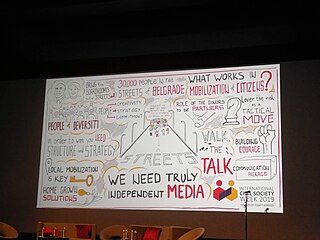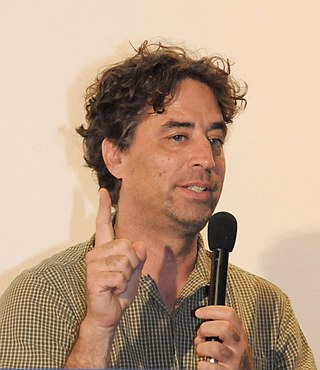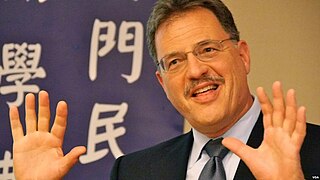Regulation is the management of complex systems according to a set of rules and trends. In systems theory, these types of rules exist in various fields of biology and society, but the term has slightly different meanings according to context. For example:

Civil society can be understood as the "third sector" of society, distinct from government and business, and including the family and the private sphere. By other authors, civil society is used in the sense of 1) the aggregate of non-governmental organizations and institutions that advance the interests and will of citizens or 2) individuals and organizations in a society which are independent of the government.
Good governance is the process of measuring how public institutions conduct public affairs and manage public resources and guarantee the realization of human rights in a manner essentially free of abuse and corruption and with due regard for the rule of law. Governance is "the process of decision-making and the process by which decisions are implemented ". Governance in this context can apply to corporate, international, national, or local governance as well as the interactions between other sectors of society.

Antonio Negri was an Italian political philosopher known as one of the most prominent theorists of autonomism, as well as for his co-authorship of Empire with Michael Hardt. Born in Padua, Italy, Negri became a professor of political philosophy at the University of Padua, where he taught state and constitutional theory. Negri founded the Potere Operaio group in 1969 and was a leading member of Autonomia Operaia, and published hugely influential books urging "revolutionary consciousness."
In political science, a political system means the type of political organization that can be recognized, observed or otherwise declared by a state.

Michael Hardt is an American political philosopher and literary theorist. Hardt is best known for his book Empire, which was co-written with Antonio Negri.
Governance is the process of making and enforcing decisions within an organization or society. It encompasses decision-making, rule-setting, and enforcement mechanisms to guide the functioning of an organization or society. Effective governance is essential for maintaining order, achieving objectives, and addressing the needs of the community or members within the organization. Furthermore, effective governance promotes transparency, fosters trust among stakeholders, and adapts to changing circumstances, ensuring the organization or society remains responsive and resilient in achieving its goals. It is the process of interactions through the laws, social norms, power or language as structured in communication of an organized society over a social system. It is done by the government of a state, by a market, or by a network. It is the process of choosing the right course among the actors involved in a collective problem that leads to the creation, reinforcement, or reproduction of acceptable conduct and social order". In lay terms, it could be described as the processes that exist in and between formal institutions.

Empire is a book by post-Marxist philosophers Michael Hardt and Antonio Negri. Written in the mid-1990s, it was published in 2000 and quickly sold beyond its expectations as an academic work.
Multitude is a term for a group of people who cannot be classed under any other distinct category, except for their shared fact of existence. Though its use dates back to antiquity, the term first entered into the lexicon of political philosophy when it was used by figures like Machiavelli, Hobbes, and most notably, Spinoza. The multitude is a concept of a population that has not entered into a social contract with a sovereign political body, such that individuals retain the capacity for political self-determination. A multitude typically is classified as a quantity exceeding 100. For Hobbes the multitude was a rabble that needed to enact a social contract with a monarch, thus turning them from a multitude into a people. For Machiavelli and Spinoza both, the role of the multitude vacillates between admiration and contempt. Recently the term has returned to prominence as a new model of resistance against global systems of power as described by political theorists Michael Hardt and Antonio Negri in their international best-seller Empire (2000) and expanded upon in their Multitude: War and Democracy in the Age of Empire (2004). Other theorists recently began to use the term include political thinkers associated with autonomist Marxism and its sequelae, including Sylvère Lotringer, Paolo Virno, and thinkers connected with the eponymous review Multitudes.

Larry Jay Diamond is an American political sociologist and leading contemporary scholar in the field of democracy studies. Diamond is a senior fellow at the Freeman Spogli Institute for International Studies, Stanford University's main center for research on international issues. At the Institute Diamond served as the director of the Center on Democracy, Development, and the Rule of Law from 2009-2016. He was succeeded in that role by Francis Fukuyama and then Kathryn Stoner.
Autonomism, also known as Autonomist Marxism, is an anti-capitalist social movement and Marxist-based theoretical current that first emerged in Italy in the 1960s from workerism. Later, post-Marxist and anarchist tendencies became significant after influence from the Situationists, the failure of Italian far-left movements in the 1970s, and the emergence of a number of important theorists including Antonio Negri, who had contributed to the 1969 founding of Potere Operaio as well as Mario Tronti, Paolo Virno and Franco "Bifo" Berardi.

Multitude: War and Democracy in the Age of Empire is a book by autonomous Marxist philosophers Antonio Negri and Michael Hardt that was published in 2004. It is the second installment of a "trilogy", also comprising Empire (2000) and Commonwealth (2009).
Affective labor is work carried out that is intended to produce or modify emotional experiences in people. This is in contrast to emotional labor, which is intended to produce or modify one's own emotional experiences. Coming out of Autonomist feminist critiques of marginalized and so-called "invisible" labor, it has been the focus of critical discussions by, e.g., Antonio Negri, Michael Hardt, Juan Martin Prada, and Michael Betancourt.
Posthegemony or post-hegemony is a period or a situation in which hegemony is no longer said to function as the organizing principle of a national or post-national social order, or of the relationships between and amongst nation states within the global order. The concept has different meanings within the fields of political theory, cultural studies, and international relations.

Commonwealth is a book by autonomous Marxist theorists Michael Hardt and Antonio Negri. It completes a trilogy which includes Empire and Multitude: War and Democracy in the Age of Empire.
Types of democracy refers to the various governance structures that embody the principles of democracy in some way. Democracy is frequently applied to governments, but may also be applied to other constructs like workplaces, families, community associations, and so forth.
The global citizens movement is a constellation of organized and overlapping citizens' groups seeking to foster global solidarity in policy and consciousness. The term is often used synonymously with the anti-globalization movement or the global justice movement.

Larry Catá Backer is a Cuban-American legal scholar and professor of law and international affairs. He holds a professorship at the Penn State University, and is the W. Richard and Mary Eshelman Faculty Scholar Professor of Law and International Affairs, Penn State Law and School of International Affairs, Pennsylvania State University (2001–), Ashgate Publishing Globalization Law & Policy Series editor (2010–), and the executive director of the Washington-based NGO Coalition for Peace and Ethics (2006–).
The following outline is provided as an overview of and topical guide to democracy.

Jiang Shigong is a Chinese legal and political theorist, who is currently the vice president of the Minzu University of China. He was previously a professor at Peking University Law School, and a researcher on Hong Kong affairs. He is a "conservative socialist" exponent of Xi Jinping Thought and opposed to liberalism in China.








